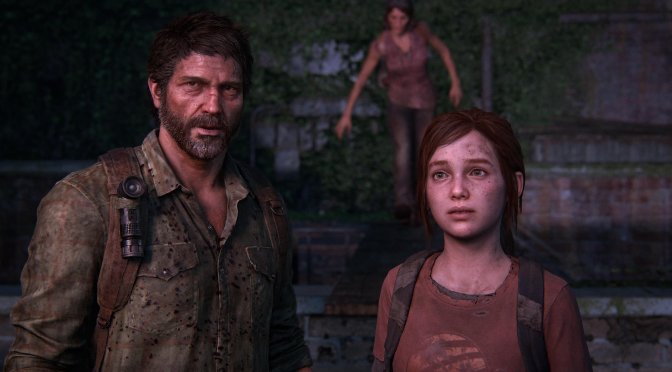The Last of Us: A Masterpiece in Gaming
The gaming industry, renowned for its diverse range of immersive experiences, has witnessed numerous groundbreaking titles over the last few decades. Among these, "The Last of Us," developed by Naughty Dog and released exclusively for PlayStation, stands as a quintessential example of how video games can transcend traditional entertainment mediums, becoming art. With its release in 2013, this post-apocalyptic action-adventure captivated audiences, setting a benchmark for storytelling, character development, and emotional engagement in games. In this article, we'll explore why "The Last of Us" remains a celebrated masterpiece in gaming history.
A Riveting Storyline
At the heart of "The Last of Us" is its compelling narrative. The game introduces players to a dystopian world devastated by a fungal outbreak that turns humans into aggressive creatures. As players navigate through the chaos, they step into the shoes of Joel, a hardened survivor tasked with escorting Ellie, a teenage girl who might be humanity's last hope for a cure. The journey across a ravaged United States is marked by danger, tension, and a powerful exploration of human emotions and relationships.
The storyline is expertly crafted, challenging players to confront moral dilemmas and question the lines between good and evil. Joel and Ellie's evolving relationship, reminiscent of a father-daughter bond, forms an emotional core that resonates with players. The game explores themes of sacrifice, loss, and hope, weaving a narrative that is both haunting and heartwarming. It's a testament to the storytelling prowess of Neil Druckmann, the creative director, and writer, whose vision ensured that the narrative stayed grounded in reality despite its fantastical elements.
Character Depth and Development
Part of what makes "The Last of Us" stand out is its remarkable character depth. Joel and Ellie are not merely protagonists; they are complex, multi-dimensional individuals. Joel's character is initially portrayed as cynical and hardened by past traumas, particularly the loss he suffered at the onset of the outbreak. However, as the story progresses, players witness his vulnerabilities, making him a deeply relatable character.
Ellie, on the other hand, is portrayed with a refreshing authenticity. She is witty, brave, and resourceful, yet carries the weight of having grown up in a world devoid of innocence. Her growth throughout the game is palpable as she transitions from being a dependent young girl to a capable survivor. The interplay between Joel and Ellie is not only central to the narrative but also enriches the gameplay experience, making players invest emotionally in their journey.
Stunning Visuals and Immersive Atmosphere
Naughty Dog is renowned for its attention to detail, and "The Last of Us" is no exception. The game's visuals are nothing short of breathtaking, capturing the desolate beauty of a post-apocalyptic world. From the overgrown urban ruins to the serene yet eerie landscapes, each environment is meticulously crafted to evoke a sense of melancholy and wonder. The realistic graphics, made possible by the PlayStation's capabilities, contribute to an immersive atmosphere that draws players in and makes the world feel palpable.
Moreover, the sound design and score by Gustavo Santaolalla amplify the emotional impact of the game. The hauntingly beautiful music complements the narrative's tone, heightening tension and enhancing moments of introspection. The environmental sounds, whether it's the distant rustling of leaves or the unsettling growls of infected creatures, further immerse players in the game's world, creating an experience that is as auditory as it is visual.
Innovative Gameplay Mechanics
Beyond its story and visuals, "The Last of Us" excels in its gameplay mechanics, which seamlessly blend action, strategy, and survival elements. The game encourages players to approach situations with creativity, offering a mix of stealth and combat scenarios that challenge one's adaptability. Resources are scarce, requiring players to be strategic in their approach, whether deciding to craft a health kit or a Molotov cocktail.
The AI behavior of enemies, both human and infected, ensures that each encounter feels fresh and unpredictable. Players must use their environment to their advantage, employing a variety of tactics to outsmart their foes. This emphasis on strategic gameplay not only keeps players engaged but also reinforces the game's themes of survival and resilience.
The Lasting Impact
"The Last of Us" has left an indelible mark on the gaming industry and has been widely regarded as one of the greatest video games of all time. Its success paved the way for a sequel, "The Last of Us Part II," and even inspired a television adaptation, further solidifying its place in popular culture. The game's ability to create a deeply emotional response and push the boundaries of interactive storytelling has influenced countless developers and continues to inspire new generations of gamers.
In conclusion, "The Last of Us" is not just a game; it's a profound journey that challenges the conventions of traditional storytelling in video games. Its blend of a heartfelt narrative, rich character development, stunning visuals, and innovative gameplay creates an experience that lingers long after the credits roll. As we look back on its impact, it remains a testament to what video games can achieve, setting a standard for future titles in the industry.
The Evolution of Gaming through "The Last of Us"
"The Last of Us" represents a significant leap forward in the evolution of gaming, not only due to its storytelling and gameplay mechanics but also through its demonstration of how video games can serve as a medium for complex emotional experiences. While gaming has often been stereotyped as a simple pastime, titles like "The Last of Us" challenge this perception, showcasing the depth and sophistication possible within this interactive space.
Prior to its release, many blockbuster games focused primarily on mechanics, graphics, or the adrenaline rush of high-stakes action. What "The Last of Us" introduced was an unprecedented focus on emotional storytelling. This focus demonstrated that games could evoke the same range of emotions as literature or film, inviting players to invest deeply in characters and their plight. This shift in focus has encouraged developers to explore narratives that are more nuanced, compelling, and representative of real-world complexities and dynamics.
Pioneering Accessibility in Gaming
Another remarkable aspect of "The Last of Us" series, particularly emphasized in "The Last of Us Part II," is its groundbreaking efforts in improving game accessibility. This focus on inclusivity set a new industry standard, illustrating Naughty Dog's commitment to ensuring that games could be enjoyed by a broader spectrum of players, regardless of physical limitations.
With an extensive array of accessibility options, such as audio cues for the visually impaired, customizable controls, and various difficulty settings, the game has ensured that it caters to players with different needs. These features permit players to adjust their experience without diminishing the challenge or impact of the story. This approach has been widely praised and has inspired other game developers to implement similar features, ensuring that video games become more inclusive and accessible to all.
The Complex Morality of Choices
A significant aspect that underscores the depth of "The Last of Us" is its exploration of morality and the consequences of choices. Unlike many games that present clear distinctions between right and wrong or good and evil, "The Last of Us" thrives in moral ambiguity. The characters are faced with difficult decisions that often have no distinctly positive outcomes, reflecting real-world scenarios where outcomes are not black and white.
This moral complexity not only enriches the narrative but also engages players on a deeper level, compelling them to consider the impact of their choices. It challenges players to empathize with characters' motives, even when they diverge from standard heroic archetypes. This blend of narrative depth and player engagement exemplifies how video games can explore profound topics and provoke introspection, turning gaming into a medium that both entertains and makes us think critically.
The Influence on the Industry
The impact of "The Last of Us" extends beyond its own franchise, significantly influencing the gaming industry at large. It set a precedent for storytelling and character development, inspiring other developers to focus on rich narratives and emotional engagement. The game also stimulated discussions around video games as a form of artistry, legitimizing them alongside more traditional forms of narrative like cinema and literature.
Its influence is particularly evident in the way subsequent games have embraced similar themes and narrative structures. Titles such as "Red Dead Redemption 2" and "God of War" have followed in its footsteps, pushing narrative boundaries and prioritizing character-driven stories alongside immersive gameplay. By proving successful, "The Last of Us" paved the way for these narratives to be embraced by both developers and players, evidencing the players' appetite for story-rich interactive experiences.
Cultural Resonance and Cross-Media Adaptations
Beyond gaming, the cultural resonance of "The Last of Us" has led to its expansion into other media. Its adaptation into a television series is a testament to the game's richly layered narrative that lends itself naturally to storytelling in other formats. Such adaptations highlight how stories originally told in a digital, interactive forum can successfully cross over into traditional media, bringing their complex worlds to a broader audience.
This cross-media adaptation underscores the broader cultural impact of "The Last of Us," demonstrating the potential of video games to not just entertain, but to transcend the boundaries traditionally associated with the medium. By capturing themes of human perseverance and moral complexity, the story resonates with audiences, inviting a wider appreciation that bridges fans of gaming with those of dramatic storytelling.
Looking Ahead: The Future Legacy of "The Last of Us"
As the gaming industry continues to grow and evolve, "The Last of Us" remains a pivotal reference point for how video games can fuse narrative, art, and gameplay into a cohesive experience. It highlights the vitality of storytelling and character development in creating lasting impressions on players. The game’s success has solidified its place as a foundational text in gaming, one that will likely inspire various aspects of game development, from writing and design to gameplay innovation.
Looking to the future, the legacy of "The Last of Us" will endure as both a harbinger of narrative innovation and as an exemplar of artistic achievement in video games. As developers continue to explore this new narrative frontier, one can expect to see more titles that challenge both the conventions of storytelling and the scope of what interactive media can achieve. The influence of "The Last of Us" is set to endure, guiding the gaming industry toward richer, more immersive experiences that captivate and resonate with audiences worldwide.
The Emotional Depth of "The Last of Us" Soundscape
Integral to the immersive experience of "The Last of Us" is its evocative soundscape. The game's sound design transcends conventional expectations, providing not only auditory information but also enhancing the emotional resonance and narrative depth of the journey. At the forefront of this auditory art is the musical score composed by Gustavo Santaolalla, whose simple yet profound compositions perfectly capture the game's emotional tones.
Santaolalla's music utilizes sparse, acoustic melodies that evoke a poignant sense of melancholy and hope, seamlessly complementing the on-screen visuals and narrative developments. This auditory experience deepens players' connection to the characters and their trajectory. The music often underscores moments of quiet introspection as much as action-filled sequences, serving as a bridge that links players emotionally to the unfolding drama.
Furthermore, environmental sounds play a crucial role, providing cues that enhance the game's realism. The rustling of leaves, creaking of old structures, or the distant growls of infected creatures add layers to the storytelling, making the world feel genuinely alive. This meticulous attention to audio detail not only grounds players within the game but also elevates their emotional engagement, creating a soundscape that lingers long after the game is over.
Community and Legacy: Fans of "The Last of Us"
The impact of "The Last of Us" is not limited to its critical acclaim or influence on future games; it also extends prominently into its dedicated and passionate fandom. This community of players has embraced the series not only for its gameplay and narrative depth but for its capacity to foster discussions around its themes, characters, and its portrayal of human nature.
Fan engagement often extends beyond traditional boundaries, inspiring various forms of creative expression including fan art, fan fiction, and community-driven analysis and discussions. These activities demonstrate how deeply the narrative has resonated with players, prompting them to explore and expand on the universe created by Naughty Dog. This active participation highlights the interactive nature of gaming, where the audience becomes a part of the story, exploring its nuances and finding relevance in their own lives.
Additionally, the game's themes have spurred discussions about representation, ethics, and narrative complexity, extending the conversation beyond the traditional gaming community into broader cultural discussions. "The Last of Us" serves as a catalyst for these dialogues, illustrating the role of video games as a powerful medium for societal reflection and exploration of human values.
The Role of Technology in Amplifying Storytelling
Technology has played a pivotal role in enabling the storytelling sophistication seen in "The Last of Us." From advanced graphics engines to motion capture technology, these technological advancements have facilitated the creation of a realistic and immersive world that players can lose themselves in. The meticulous detail seen in character expressions, environmental design, and animated sequences is made possible through cutting-edge technology, allowing for storytelling that is both visually stunning and deeply engaging.
Motion capture technology, in particular, has transformed character portrayal, capturing nuanced performances from actors for both physical movements and facial expressions. This technology enables a level of authenticity in character interaction and emotion that deeply enhances the narrative. It allows story moments to unfold with cinematic quality, closing the gap between interactive gaming and traditional storytelling media such as film.
As technology continues to advance, so will the potential for even more sophisticated storytelling within the gaming industry. "The Last of Us" stands as a prime example of how technological innovation can empower developers to explore complex narratives and push the boundaries of what is perceptually possible in the interactive medium.
Enduring Themes and Lessons
The themes presented in "The Last of Us" are timeless and universal, making the game resonate with players across different cultures and backgrounds. Themes of survival, loss, humanity's resilience, and the moral complexities of decisions are deeply explored, encouraging players to reflect on these issues in their own lives. The exploration of what it means to be human in an unpredictably hostile world speaks to a broader narrative of empathy, connection, and perseverance.
The lesson that players take away from "The Last of Us" extends beyond the survival mechanics and gripping action sequences. It challenges players to consider the importance of human connection and the lengths to which individuals go to protect what they value most. Such themes hold relevance not just within the fictional realm of the game but in broader discussions concerning our own world.
The Timeless Impact of "The Last of Us"
As "The Last of Us" continues to garner appreciation from both newcomers and long-time fans, its legacy as a hallmark of interactive storytelling and emotional depth in the gaming world grows ever stronger. It has set a precedent for how video games can engage with players on multiple levels, from thrilling gameplay to profound narrative exploration. This engagement positions "The Last of Us" as not just a game, but a testament to the formidable potential within the gaming medium.
As we look to the future of gaming, "The Last of Us" remains an invaluable reference point for how compelling storytelling and cinematic experiences can be achieved within an interactive framework. Its influence will continue to be seen in upcoming titles that push the boundaries of emotional and narrative depth, ensuring that the spirited conversations, rich narratives, and emotional journeys of games like "The Last of Us" endure and evolve with new gaming generations.










Comments